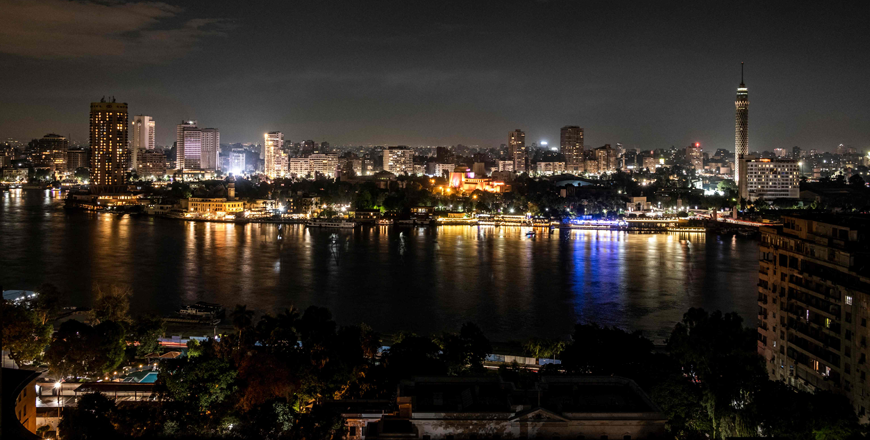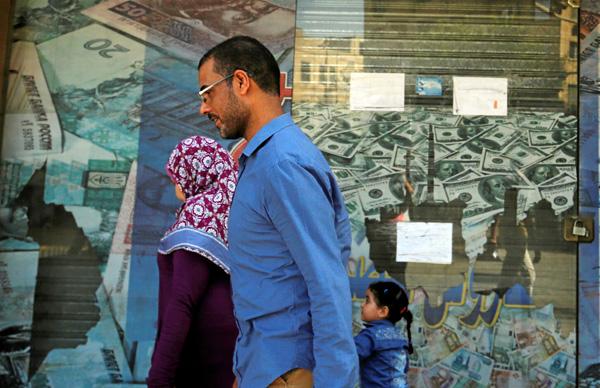You are here
Egypt's currency halved in value since March
By AFP - Jan 11,2023 - Last updated at Jan 11,2023

Fishermen sit in a boat in the Suez Canal near Ismailia in eastern Egypt on Monday (AFP photo)
CAIRO — The Egyptian pound was trading on Wednesday at half its value from March after the central bank intervened for a third time as part of an International Monetary Fund (IMF) loan agreement.
The devaluation, representing a drop of around 50 per cent against the dollar over the 10-month period, comes as the price of imported food and other goods is soaring in the country of 104 million.
The Egyptian pound plunged to 31.95 pounds to the dollar in state banks on Wednesday before recovering somewhat in the early afternoon to 29.8 pounds against the greenback.
Experts say the devaluation could continue, with the pound trading at around 35 to the dollar on the parallel market.
Egypt's economy was hit hard after Russia's invasion of Ukraine last February unsettled global investors and led them to pull billions out of the North African country.
The war sent wheat prices spiraling, heavily impacting Egypt, one of the world's largest grain importers, and piling pressure on its foreign currency reserves.
With costs driven up further by soaring global energy prices, official inflation hit 21.9 per cent in December, and food prices rose 37.9 per cent year on year, piling further hardship onto households.
The IMF late last year approved a $3 billion loan programme for Egypt, conditioned on "a permanent shift to a flexible exchange rate regime" and a "monetary policy aimed at gradually reducing inflation".
Egypt also needs to carry out "wide-ranging structural reforms to reduce the state footprint", the IMF said at the time, with the economy dominated by powerful state and military-led enterprises.
The IMF loan programme, worth $3 billion over 46 months, is a drop in the bucket for Cairo whose debt service in 2022-2023 alone amounts to $42 billion.
Egypt has only $34 billion in foreign currency reserves compared to $41 billion last February, while its foreign debt has more than tripled in the past decade to $157 billion.
Many banks have limited foreign currency withdrawals and increased credit card charges.
Prime Minister Mostafa Madbouli on Monday told ministers to cut budgets and announced a moratorium “on new projects that have a clear dollar component”.
Egypt has been dependent on bailouts in recent years, both from the IMF and from Gulf allies.
According to ratings agency Moody’s, Egypt, the Arab world’s most populous country, is one of the five economies most at risk of defaulting on its foreign debt
Related Articles
CAIRO — Egypt has clinched a $3 billion loan deal with the International Monetary Fund (IMF) conditioned on a currency depreciation and stat
CAIRO — Annual inflation in Egypt hit 36.8 per cent in June, official figures showed on Monday, an all-time high for the country grappling w
WASHINGTON — International Monetary Fund (IMF) chief Christine Lagarde said Tuesday she will recommend the institution approve a $12 billion















